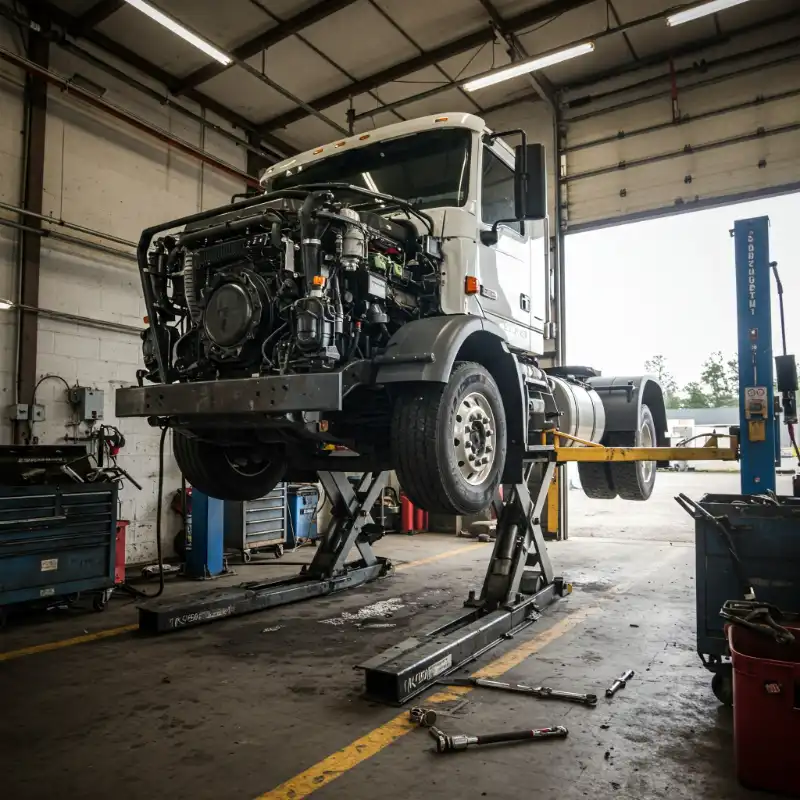PACCAR Engines
PACCAR, a renowned manufacturer in the automotive industry, has made significant strides in engine technology, particularly with their PACCAR engines. These engines, known for their performance and fuel efficiency, require meticulous care to ensure their longevity and optimal functionality. Among the crucial aspects of maintaining PACCAR engines is understanding the pivotal role of engine oil. This article delves into the best practices for oil change and analysis, shedding light on the importance of engine oil in these exceptional engines.
Importance of Engine Oil
Engine oil plays a critical role in ensuring the smooth operation and longevity of PACCAR engines. Primarily, it acts as a lubricant, reducing friction between engine components and promoting seamless movement. Engine oil aids in heat dissipation, keeping the engine cool during operation. It excels in removing contaminants, ensuring a clean and efficient engine. Additionally, engine oil serves as a sealant, preventing potential leakages, and as a corrosion inhibitor, safeguarding vital engine parts.
Click here to learn more about our oil and fluid services!
Understanding PACCAR Engine Oil Specifications
To maintain PACCAR engines, it's essential to comprehend the specifications of engine oil recommended by PACCAR. These specifications encompass API classifications and viscosity ratings, such as SAE 10W-30 or SAE 15W-40, which have distinct implications on engine performance. Adhering to these specifications ensures the engine operates within the manufacturer's defined parameters, enhancing its efficiency and durability.
Best Practices for Engine Oil Change
- Adhere to Recommended Oil Change Frequency: Follow PACCAR's guidelines on the frequency of oil changes to maintain engine health and performance.
- Utilize High-Quality Filters: Employ premium filters during oil changes to effectively capture impurities and extend the engine's life.
- Proper Draining and Disposal Procedures: Ensure thorough draining of the old oil and appropriate disposal, following environmental regulations.
- Replace Oil Plug Gasket: Regularly replace the oil plug gasket to prevent leaks and maintain a tight seal.
Common Engine Oil Issues and Troubleshooting
In addressing potential engine overheating issues, it is imperative to identify and rectify such problems promptly. Overheating is often a result of insufficient lubrication and inadequate cooling mechanisms provided by engine oil. By recognizing and addressing these concerns, the risk of extensive damage to the engine can be mitigated, ensuring proper functionality.
Another critical aspect of engine maintenance is effectively managing oil contamination. Oil contamination can significantly impact engine performance and longevity, making implementing measures to control and reduce contamination levels essential. By adopting appropriate measures and monitoring oil quality, the engine's efficiency can be preserved, prolonging its lifespan and preventing potential complications arising from contaminated oil.
Addressing oil leaks and seals is equally vital in engine maintenance. Oil leaks not only signify a loss of vital lubrication but can also lead to other operational issues. Ensuring proper sealing and resolving any leaks help maintain the integrity of the engine, safeguarding against potential damage.
Steps for Conducting Oil Analysis
- Purpose and Benefits of Oil Analysis: Conduct oil analysis to monitor the engine's condition, detect potential issues, and optimize maintenance schedules.
- Collect a Representative Oil Sample: Gather an oil sample accurately representing the engine's condition during routine analysis.
- Send Sample for Laboratory Analysis: Submit the oil sample to a reputable laboratory for in-depth analysis and obtain a comprehensive report.
- Interpret Oil Analysis Report: Review the analysis report, considering various parameters like wear particles and contamination levels, to make informed maintenance decisions.
Choosing the Right Engine Oil for PACCAR Engines
When selecting the right engine oil for PACCAR engines, careful consideration of various factors is paramount. Engine type, climate, load demands, and the manufacturer's recommendations play pivotal roles in determining the right oil. PACCAR offers precise guidelines to assist in this selection process, ensuring that the chosen oil aligns seamlessly with the requirements and operating conditions of the engine. By following these guidelines diligently, truck owners and fleet managers can enhance the engine's performance, longevity, and overall efficiency.
Tips for Extending Engine Oil Life
- Proper Warm-Up and Cool-Down Procedures: Follow manufacturer-recommended warm-up and cool-down procedures to prolong engine oil life.
- Monitor Oil Levels: Regularly check and maintain optimal oil levels to prevent potential damage to the engine due to low oil levels.
- Minimize Excessive Idling and Harsh Driving: Avoid prolonged idling and harsh driving, as these habits can accelerate oil degradation and reduce its effectiveness.
Conclusion
Engine oil is a vital component in maintaining the performance and longevity of PACCAR engines. It is crucial to understand its importance and follow best practices for oil change and analysis. By sticking to manufacturer-recommended specifications and employing the right maintenance strategies, truck owners and fleet managers can maximize the potential of their PACCAR engines and contribute to their long-lasting performance.










.webp)





























